सारा दिन जागे तो बेजान सी हो जाती हैं
सांस लेती हुई आँखों को ज़रा सोने दो
सांस लेती हुई आँखे अक़्सर
बोलती रहती है गूंगी बातें
सारा दिन चुनती हूँ सूखे पत्ते
रात भर काटी है सूखी राते
आँखें बुझ जाती है ये देखा है
ज़िन्दगी रूकती नहीं बुझती नहीं…
गुलज़ार (फ़िल्म – सितम)
Renowned actress Smita Patil known for her powerful screen presence and lively acting performance that leaves the audience astonished.
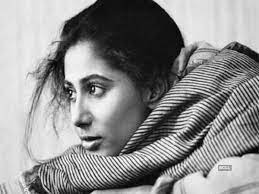
Picture: Social Media
She was born on October 17, 1955, in Pune, Maharashtra. Her life and career were marked by talent, social activism, and a commitment to addressing important issues through her work.
Her father, Shivajirao Girdhar Patil, was a political leader, and her mother, Vidyatai Patil, was a social worker. Growing up, Smita was influenced by her parents’ involvement in social and political causes, which later became an integral part of her life.
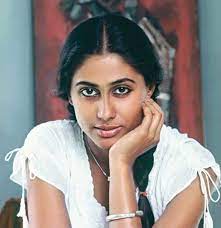
Picture: Social Media
Patil studied literature at University of Mumbai and was a part of local theatre groups in Pune and spent much of her time at the campus of the Film and Television Institute of India (FTII), causing many to mistake her for an alumna. The family moved to Bombay (now Mumbai) in 1969, following her father’s election as a cabinet minister.
Patil started her career in the early 1970s as a television newsreader on the newly transmitting Mumbai Doordarshan. Her first film role was in the FTII student film Teevra Madhyam by Arun Khopkar. Noted filmmaker Shyam Benegal saw that film and impressed with her talent. He immediately casted her in his 1974 children’s film, Charandas Chor. But before that she appeared in Raja Shiv Chhatrapati a Marathi film in 1974.
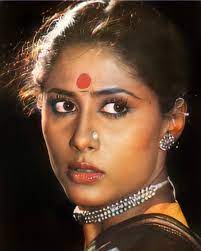
Picture: Social Media
Smita Patil’s first major role was in his other film, Manthan, in which she played a Harijan woman who leads the revolt of the milk co-operative. Her talent quickly gained recognition, and she transitioned to Hindi cinema. Over the years, she appeared in numerous critically acclaimed films, often portraying strong and independent women. Some of her notable films include:
Manthan (1976): Directed by Shyam Benegal, this film marked her entry into the parallel cinema movement in India.
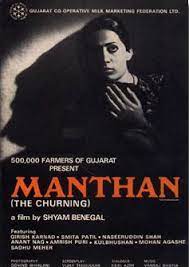
Bhumika (1977): She received the National Film Award for Best Actress for her role in this film, which was loosely based on the life of the actress Hansa Wadkar.
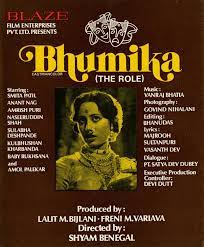
Aakrosh (1980): In this film, she played a crucial role, and her performance was highly praised.
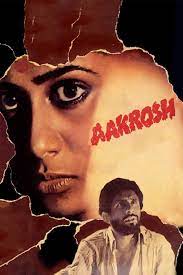
Chakra (1981): This film explored the struggles of a working-class woman and her fight for justice.
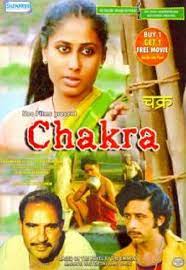
Bazaar (1982): This film portrays the issue of bride buying in India for Gulf countries. The film also stars Farookh Shaikh, Supriya Pathak and Naseeruddin Shah.
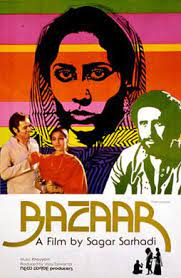
Shakti (1982): Despite of her serious image in parallel cinema, she appeared in masala Bollywood films too. She shines among the Superstars of Indian cinema Amitabh Bachchan and Dilip Kumar.
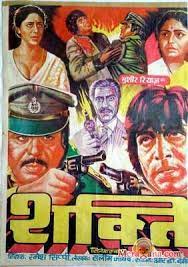
Namak Halaal (1982): In addition to serious roles, Smita Patil also appeared in mainstream Bollywood films, showcasing her versatility.
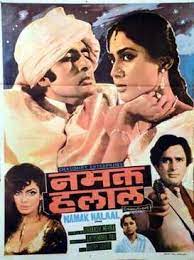
Mandi (1983): This film was based on Urdu short story written by Ghulam Abbas. This satirical film was on politics and prostitution. Film stars Shabana Azmi, Naseeruddin Shah along with Smita.
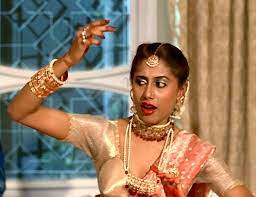
Picture: Social Media
Mirch Masala (1987): Released posthumously, this film is often regarded as one of her finest performances. On the centenary of Indian cinema in April 2013, Forbes included Smita Patil’s performance in the film on its list, “25 Greatest Acting Performances of Indian Cinema”.
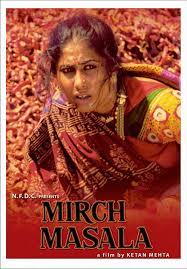
Smita Patil’s performances were known for their depth and authenticity, earning her accolades and awards throughout her career.
Smita Patil was known for her social activism and strong political beliefs. She was deeply committed to women’s rights and other social issues. She married actor Raj Babbar in 1986, and they had a son named Prateek Babbar.
Smita Patil’s life was tragically cut short when she died on 13 December, 1986 at the age of 31 due to complications during childbirth. Her sudden and untimely death was a huge loss to the Indian film industry.
Smita Patil’s legacy endures through her remarkable body of work and her influence on subsequent generations of actors. Her commitment to social causes and her impactful portrayals of complex female characters continue to inspire and resonate with audiences and filmmakers. She remains an iconic figure in Indian cinema and is remembered as one of the most talented and influential actresses in the history of Indian film.